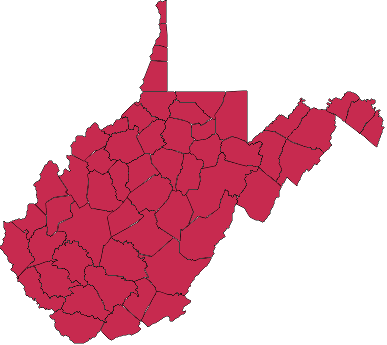Navigating Winter in West Virginia: Understanding School Closures and the Importance of Reliable Information
Related Articles: Navigating Winter in West Virginia: Understanding School Closures and the Importance of Reliable Information
Introduction
In this auspicious occasion, we are delighted to delve into the intriguing topic related to Navigating Winter in West Virginia: Understanding School Closures and the Importance of Reliable Information. Let’s weave interesting information and offer fresh perspectives to the readers.
Table of Content
Navigating Winter in West Virginia: Understanding School Closures and the Importance of Reliable Information
West Virginia, known for its stunning natural beauty, also faces the realities of harsh winters. Snowfall and icy conditions can disrupt daily life, including the operation of schools. In such situations, accurate and timely information regarding school closures becomes crucial for parents, students, and educators alike. This article explores the significance of snow day maps in West Virginia, examining their purpose, usage, and the vital role they play in navigating winter weather disruptions.
The Role of Snow Day Maps
Snow day maps, often presented online or through mobile applications, serve as a centralized source of information regarding school closures in West Virginia. They provide a visual representation of counties or school districts where schools have been closed due to inclement weather.
Benefits of Using Snow Day Maps
-
Efficiency and Convenience: Snow day maps offer a streamlined way to access information about school closures. Instead of checking individual school websites or local news channels, users can quickly view a comprehensive map indicating affected areas.
-
Timely Updates: These maps are typically updated in real-time, reflecting the latest decisions made by school officials. This ensures that users have access to the most up-to-date information.
-
Clarity and Transparency: Snow day maps eliminate the ambiguity that can arise from conflicting information sources. The visual representation provides a clear picture of which schools are closed and which remain open.
-
Community Engagement: By centralizing information, snow day maps foster a sense of community awareness and preparedness. Parents and students can easily access information, enabling them to adjust schedules and make necessary arrangements.
Understanding How Snow Day Maps Work
Snow day maps are typically based on data provided by local school districts and county officials. These entities notify map developers about closures, and the information is then reflected on the map in real-time.
-
Data Sources: The maps utilize various data sources, including:
- Official School District Websites: School districts often publish closure announcements on their websites, which are then integrated into the map.
- Local News Outlets: Many news channels provide updates on school closures, and this information can be incorporated into snow day maps.
- Social Media: Social media platforms can be used to share information about closures, and map developers may utilize these updates.
-
Map Design: Snow day maps are designed for user-friendliness. They typically feature:
- Interactive Interface: Users can easily zoom in and out of the map, focusing on specific areas of interest.
- Color Coding: Different colors may be used to represent open and closed schools, making it easy to identify affected areas.
- Search Functionality: Users can search for specific schools or districts to quickly find closure information.
Importance of Reliable Information
In West Virginia, where snowfall can be unpredictable and heavy, reliable information regarding school closures is critical.
-
Safety: School closures are implemented to ensure the safety of students, teachers, and staff during hazardous weather conditions. Accurate information allows families to make informed decisions about transportation and child supervision.
-
Planning and Preparation: Knowing about school closures in advance enables families to plan for childcare arrangements, work schedules, and other logistical considerations.
-
Community Impact: School closures can impact local businesses and communities. Timely information helps individuals and businesses adjust their plans and minimize disruptions.
FAQs Regarding Snow Day Maps
-
Q: How accurate are snow day maps?
- A: The accuracy of snow day maps depends on the reliability of the data sources. Most maps utilize official sources like school district websites and local news outlets, ensuring a high degree of accuracy. However, it’s important to note that information can change rapidly, so it’s always advisable to verify the information directly with the school district.
-
Q: What happens if my child’s school is not on the map?
- A: If a school is not listed on the map, it’s best to contact the school directly for closure information. Some smaller schools or private institutions may not be included in the map’s data sources.
-
Q: Are snow day maps updated in real-time?
- A: Most snow day maps are designed to provide real-time updates. However, there might be a slight delay between a closure announcement and its reflection on the map. It’s always recommended to check the map frequently for the most up-to-date information.
-
Q: What if the map indicates a school closure, but the school is open?
- A: It’s always advisable to verify information directly with the school, especially if there is a discrepancy between the map and the school’s official website or communication.
Tips for Using Snow Day Maps Effectively
- Bookmark or Save the Map: Save the snow day map link or bookmark it for easy access during winter months.
- Check the Map Regularly: It’s best to check the map frequently, especially during periods of anticipated snowfall.
- Verify Information: Always verify closure information directly with the school district or local news outlets.
- Communicate with School Officials: Contact the school directly if you have any questions or concerns about closure announcements.
Conclusion
Snow day maps serve as a valuable tool for navigating winter weather disruptions in West Virginia. They provide a centralized, efficient, and reliable source of information regarding school closures. By leveraging these maps, parents, students, and educators can stay informed, make informed decisions, and ensure the safety and well-being of the community during winter months. As technology continues to evolve, snow day maps are likely to become even more sophisticated, offering enhanced features and improved accuracy.








Closure
Thus, we hope this article has provided valuable insights into Navigating Winter in West Virginia: Understanding School Closures and the Importance of Reliable Information. We appreciate your attention to our article. See you in our next article!
